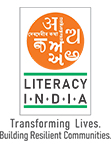Organic Farming
Providing a viable alternative to farmers
Most marginal farmers in rural areas have small land holdings and do not produce enough to earn a decent living. Some of them approached Literacy India for alternative methods to increase crop yield. We conducted a study on the potential of organic farming knowing that the demand for organic products is on the rise.Subsequently, we started training the farmers in preparing organic manure, pesticides, and use of organic waste for sustainable farming. We found that the initial costs incurred by the farmers for organic farming were lesser than the amount they would earlier invest. The crop yields also increased.
Currently, several farmers are using these methods in their own farms. They are also spreading the word among their peers.
Highlights of 2019-20
- 25 women and 30 men were trained in vermicomposting how it is used as a fertilizer.
- 30 farmers participated in training on waste decomposition.
- 25 women were trained on preparing organic pesticides.
- We were able to get more than 200 farmers to practice organic farming.
- More than 150 women were mobilized in kitchen gardening.
- 92 farmers are continuing organic farming under PGS (Public Guarantee System).
- Women and men were sent on educational tours and exposure visits to KVK Jhalawar and Hukum organic farms.
- LI disbursed micro loans to seven farmers for goat rearing and vegetable selling businesses.
- Interaction with domain experts like the state Kisan Sangh president, former KVK director, and government recruited area agriculture officer were arranged to motivate the farmers.
- Farmers were trained to use technology so they can use online platforms for product listing and use the internet to get latest updates on organic farming.
- Experiment on new crop cultivation, like organic papaya, was carried out.
- The farmers were made to link with the government agriculture schemes, through which they can avail KCC loans, subsidies and free organic seeds of soya bean and wheat.
- WhatsApp groups were formed among the farmers to sell organic grains.

